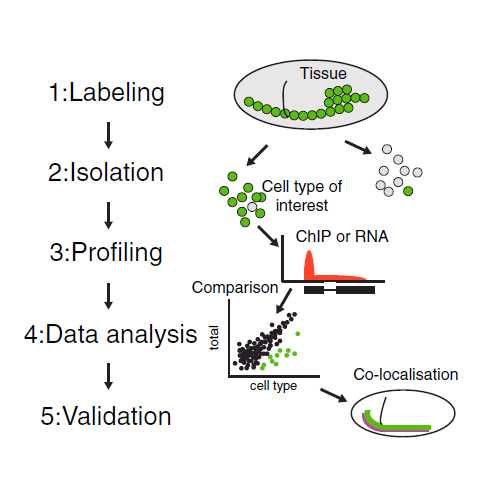Designing Cell-Type-Specific Genome-wide Experiments
21-May-2015
Molecular Cell, Volume 58, Issue 4, p621–631, DOI: http://dx.doi.org/10.1016/j.molcel.2015.04.024
Multicellular organisms depend on cell-type-specific division of labor for survival. Specific cell types have their unique developmental program and respond differently to environmental challenges, yet are orchestrated by the same genetic blueprint. A key challenge in biology is thus to understand how genes are expressed in the right place, at the right time, and to the right level. Further, this exquisite control of gene expression is perturbed in many diseases. As a consequence, coordinated physiological responses to the environment are compromised. Recently, innovative tools have been developed that are able to capture genome-wide gene expression using cell-type-specific approaches. These novel techniques allow us to understand gene regulation in vivo with unprecedented resolution and give us mechanistic insights into how multicellular organisms adapt to changing environments. In this article, we discuss the considerations needed when designing your own cell-type-specific experiment from the isolation of your starting material through selecting the appropriate controls and validating the data.











